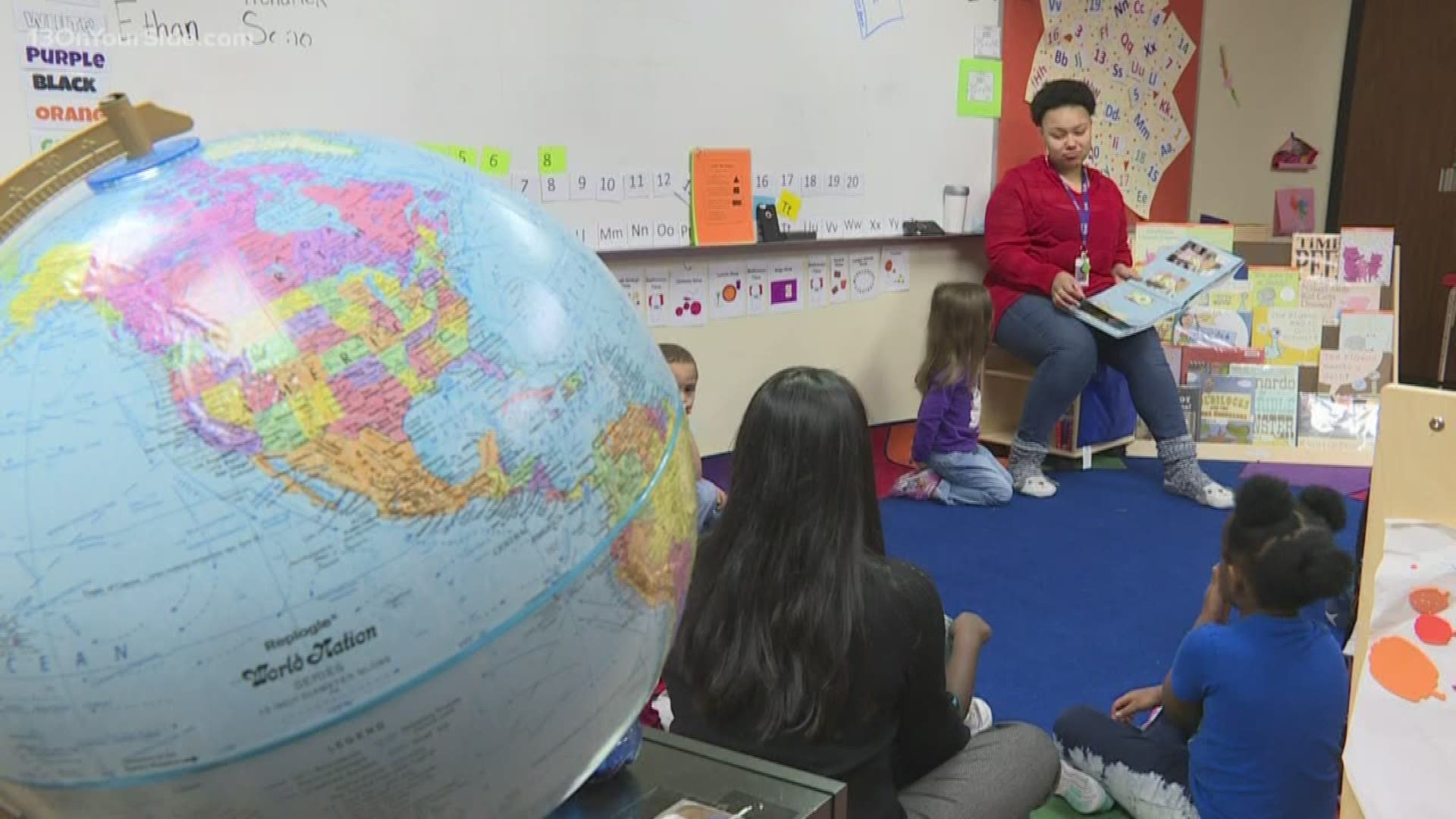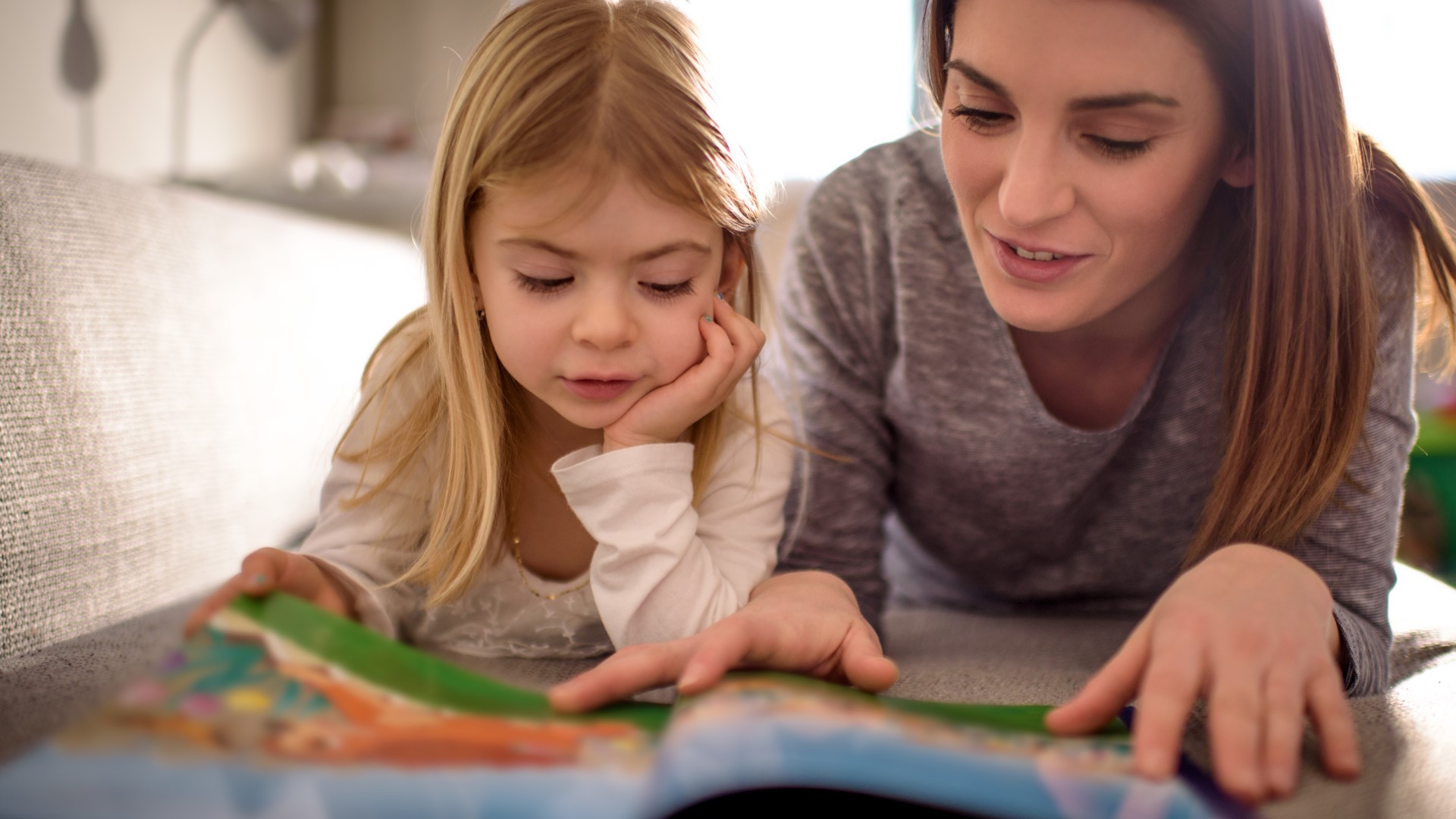Kids with parents who have low literacy skills, have a 72% chance of landing in the lowest reading levels themselves, according to ProLiteracy.
Low literacy is linked to health, gender equality, poverty, and basically every important social issue.
Adult literacy directly impacts generations to come, which can be evident as early as preschool.
In Veronika Ross’ classroom, literacy is part of almost everything.
“It's an all day thing, so when they get here, we obviously write,” Ross said. “Though they can't read the words, they're telling me what the pictures mean.
She teaches preschool to more than a dozen 4 to 5-year-olds, at Explore and Learn Academy in Grand Rapids. Early Learning Neighborhood Collaborative manages and oversees the preschool.
She said parents should start teaching literacy skills as soon as their child is born. For some, it’s a given because it’s what their parents did for them.
“She loves the Curious George books, Dr. Seuss,” said Marleen Greenman, whose daughter is enrolled in the class. “I get to read them and kind of just remember what it was like when my mom would read them to me.”
But for other parents, it doesn’t come as naturally.
“Unfortunately, you can tell when parents don't like to read, or they're nervous about reading to their kids,” Ross said. “Most of the time it’s passed down, and the kids are behind more than some other children are.”
Parents often only know to do what their parents did for them.
“It's all to me around modeling,” said Jessica Bratt, the youth services supervisor at Grand Rapids Public Library. “If you weren't shown, it's hard to engage with your kid,”
According to ProLiteracy, more than 36 million U.S. adults can’t read, write or do math above a third grade level.
“If kids are just running behind and realizing that they missed something or they didn't get something it's that much harder when they're older to focus or build those skills,” said Bratt.
In fact, kids with parents who have low literacy skills, have a 72% chance of landing in the lowest reading levels themselves, according to ProLiteracy. Those kids are more likely to get bad grades, have behavioral issues, be absent more often, repeat years, or completely drop out.
The Early Learning Neighborhood Collaborative offers programs to help break the cycle.
“We look at servicing the children in at risk situations between the ages of zero and five,” said Sommer Jabbar, the director of education for Early Learning Neighborhood Collaborative. “We do this multi generational approach. We know that if we can help you build a strong foundation and we continue to help lay that foundation with you, the child is bound for success.”
The Grand Rapids Public Library also offers resources for kids and parents, including storytimes, free play, and other programs.
Representation, both in the content and classroom, are essential.
“Picking out books that reflect who they are and who their families are is super important,” Bratt said.
Parents don’t have to just go by the book, or buy books, either. There’s power in the little things.
“I've always gotten some good ideas from the school here, on different ways to engage and keep things interesting,” Greenman said.
The experts offered the following suggestions:
“When you're grocery shopping, while you're reading things out to them, let them know, ‘this is a B, and this is in your name,’” Ross said. “You can point out letters and you can point out sounds that the letters make. So, McDonald's, big giant ‘M.’”
“If the only time you get is cooking dinner, make sure you're explaining what recipe you're doing and how much you're pouring, and ‘can you help me do this?’” Jabbar said. “If you're taking the bus to school, help the child read the bus route with you using pictures and imagery to tell that child what's going on today.”
“When we run a bath, I can get a cup from the kitchen and scoop up and pour over the kid and count as I'm as I'm scooping,” Bratt said. “You're going outside with your kid in the snow and the rain, you're asking them, ‘what does it feel like?’… and maybe even illustrating to them what to do.” She also recommends oral storytelling and singing, too.
MORE ON 13 ON YOUR SIDE:
►Make it easy to keep up to date with more stories like this. Download the 13 ON YOUR SIDE app now.
Have a news tip? Email news@13onyourside.com, visit our Facebook page or Twitter. Subscribe to our YouTube channel.


